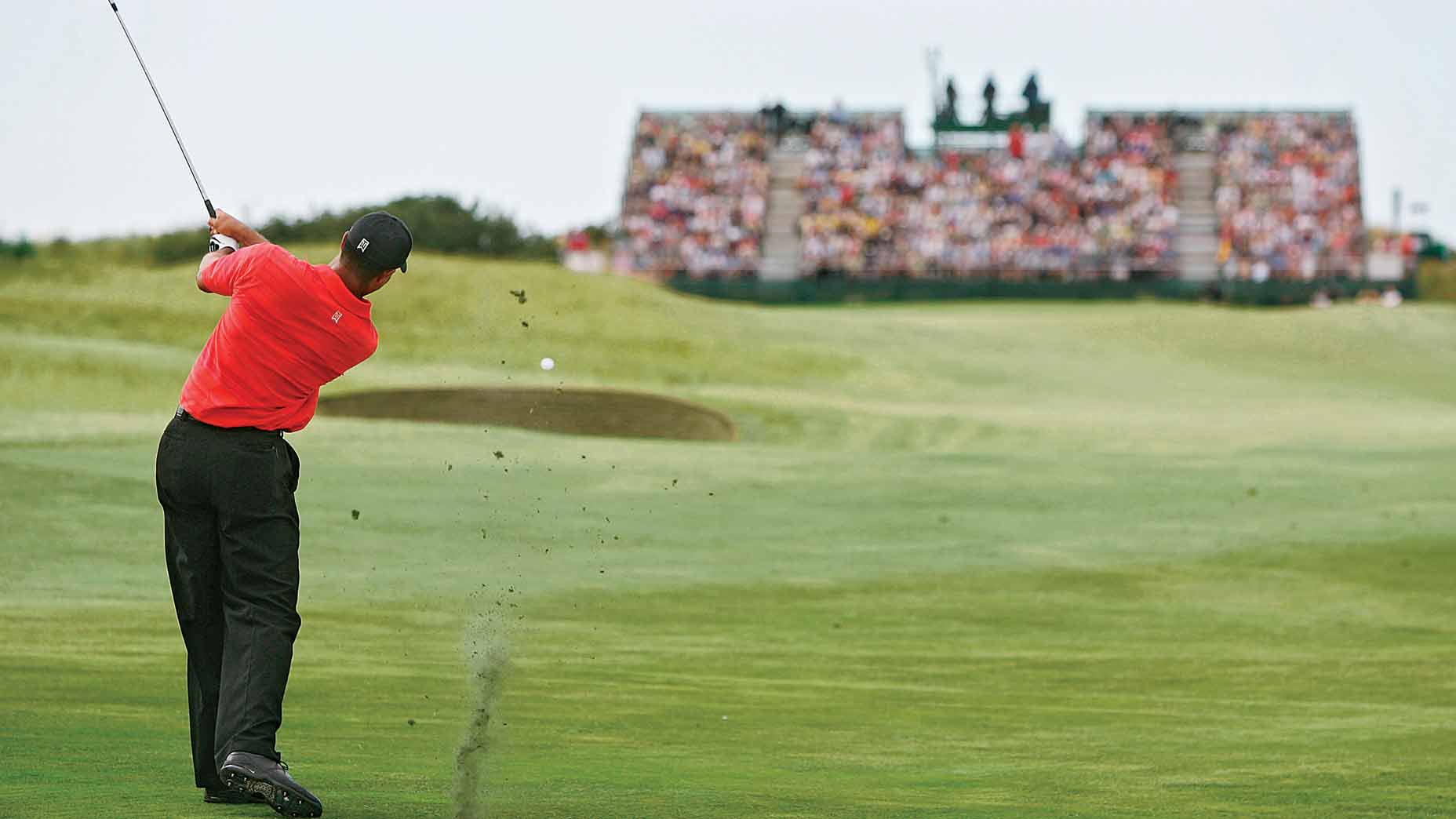Most amateurs want to tee their driver high and let it fly. But during the 2006 Open Championship, Tiger Woods took an alternative approach: a high-powered, low-flying long-iron “stinger.” The result? A second-straight Open Championship and third overall.
Woods has long been known for playing chess while the rest of the field played checkers. Using this stinger shot at Royal Liverpool and other Open venues allowed him to find the most effective way to get ahead of the competition, using a wrinkle most golfers overlook.
There’s just one problem: It’s not an easy shot for most rec players to pull off. It requires lightning-quick clubhead speed and a touch of artistry. Luckily, Tiger’s former coach and GOLF Top 100 Teacher, Sean Foley, is here to help.
1. Setup
A lot of what makes a stinger work happens at setup. Keep everything pretty much as normal, but play the ball slightly back in your stance—not a ton, more like a single ball width from where you normally position the ball with the iron you’re using. (Hint: Playing the ball a bit back is the Tour player’s secret for controlling ballflight on all shots.)
2. Takeaway
Set more pressure on your front leg. This encourages your front shoulder to shift slightly forward as you start back, moving the low point of your swing ahead of the ball. Trace as wide a swing arc as you can, rotating as much as you would when hitting driver. The big mistake is getting too narrow; if you don’t maintain width, it’s you who’ll get stung.
3. Transition
A good feeling to have is getting your hands as far away from your head as possible as you swing to the top. Once there, avoid “cupping” your lead wrist as much as possible. Let your trail wrist extend and get your lead wrist to bow, like DJ or Jon Rahm. This helps de-loft the club, fueling a lower launch and solid compression.
4. Finish
As Tiger has so perfectly stated, “If you want to hit it high, then finish high. If you want to hit it low, then finish low.” Keep your swing arc wide going through the ball, like you did on the backswing. This stops the club — and your ballflight — from getting too high. And, though you don’t want to impede any movement, slow down your arms immediately after impact. That’s the sting.
